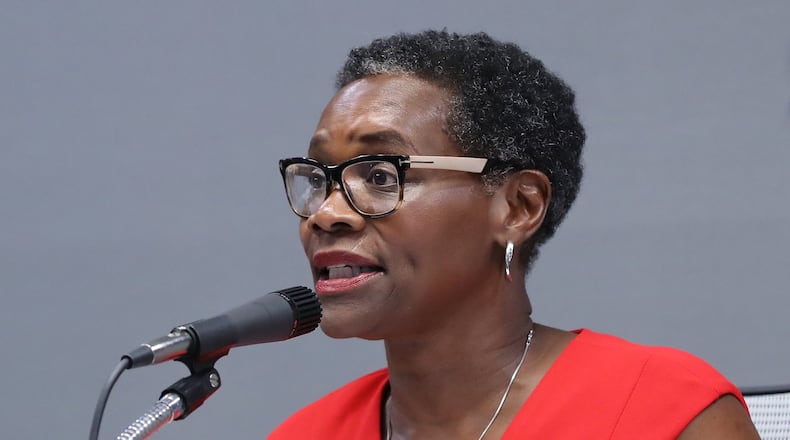Fairburn City Council members are distancing themselves from Mayor Elizabeth Carr-Hurst’s decisions on requiring city workers to report to their regular work sites rather than working from home during the worst of the COVID-19 pandemic.
The comments follow an Atlanta Journal-Constitution investigation revealing that, while other metro area cities were shutting their doors and instructing employees to work from home, Carr-Hurst continued to require employees, including administrative or clerical workers, to report to their regular work stations. Pressure to return to work continued even after the April 3 death of an administrative assistant in the police department died of COVID-19.
The AJC investigation was based on multiple interviews with city employees and scores of emails between the mayor, the city’s former administrator and other officials during the initial weeks of the pandemic.
Councilman Pat Pallend called Carr-Hurst’s approach “egregiously wrong” and denied the mayor’s claim that decisions on which employees and when would report to work were made with the blessing of the council.
BACKGROUND | As Fairburn mourns loss of colleague, mayor defends order to work on
“These are really bad decisions, and we have not had any part of shining this bad light on Fairburn,” Pallend said. “We are in a challenging time, and we don’t have the leadership in place with her calling the shots that would be useful for our citizens and employees.
“Her decisions alone have created this crisis for us,” he said.
Carr-Hurst declined an interview request to respond to criticism from council members, several of whom said they were unaware of what was going on in the city for the past several weeks until they read the story in the AJC. Councilwoman Linda Davis said it was her belief that only “essential” employees would be required to physically report to work during the crisis.
“I am deeply disturbed by the strict and inflexible treatment of our essential City employees. I was not aware of the specific interactions highlighted in this article between the mayor and our employees,” she said in an email. “The treatment of our employees as displayed in this article does not reflect my belief and practice as a Fairburn City Council member.”
The mayor previously said that no more than nine people were coming into the small office each day, adding that each one had their temperature recorded.
A March temperature log obtained by the AJC shows 14 people in City Hall. Public health experts have suggested gatherings be no larger than 10 people.
» COMPLETE COVERAGE | Coronavirus in Georgia
Mayor Pro Tem Ulysses Smallwood said the council depends on “the discretion of the mayor” on whether to be included in day-to-day decisions on personnel issues, he said. But he said the council adopted an emergency ordinance in a telephone meeting March 25 requiring only “essential” employees to physically report to work.
Those employees would be identified by Mayor Carr-Hurst,” he said. “So, while we did consult as a council on the ordinance, I never made any decision about when employees would return to work, nor did I ever consult with the council or the mayor about such.”
Likewise, Councilwoman Hattie Portis-Jones said she was “disturbed” by Carr-Hurst’s statements to the AJC that the council had been advised of her plans.
“There are things we agreed upon but they are not what they mayor has stated,” she said. “My understanding — and I’m speaking only for me — is that we would set up the ability for them to (work from home).”
Not everyone was critical of the mayor’s performance. Councilman Alex Heath gave Carr a modest compliment, saying she was “handling it pretty well.”
“This is something that happens once every hundred years. Nobody was set up to handle it properly,” he said. However, he said it was his belief that only essential workers were required to come in.
Follow | The Atlanta Journal-Constitution on Facebook and Twitter
Minutes from a March 26 City Council meeting by phone shows that Councilwoman Portis-Jones asked whether it was all personnel or just essential employees coming in. The mayor replied all employees were coming to work, according to the minutes.
The AJC read city emails and text messages where employees said they were worried about returning to work so soon after the death of a colleague. In one text message thread, one police department employee said they were being ordered back to work despite not having received the results of their COVID-19 test. Portis-Jones said morale among city workers is “at an all-time low.”
Correspondence and statements from city employees indicate that for much of the pandemic period all city workers were required to report to work, including receptionists and clerks. One employee asked the council to allow non-essential workers to work from home to protect their health, as surrounding municipalities had already done. In a March 23 response, Carr-Hurst threatened to “dismiss her on the spot” should she reach out to the council again.
Keep Reading
The Latest
Featured






